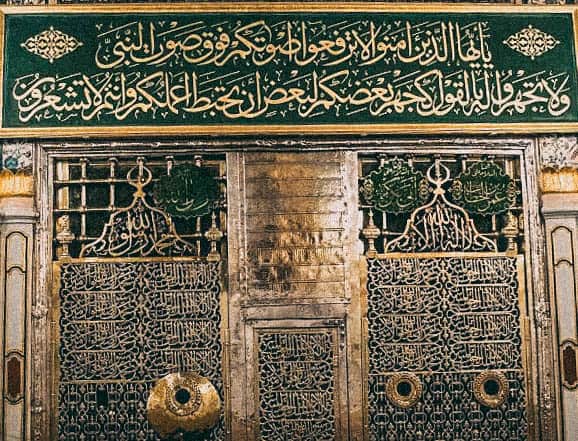Celebrating Prophet Muhammad – The most influential person in history (II)
Who was that man? He was the unlettered Prophet who was given a book which made knowledge the most worthwhile investment one could bequeath to the world. He never had a chance of learning from a scholar but was blessed with a book which makes scholarship the best profession known to humanity. He was given […]

Who was that man? He was the unlettered Prophet who was given a book which made knowledge the most worthwhile investment one could bequeath to the world. He never had a chance of learning from a scholar but was blessed with a book which makes scholarship the best profession known to humanity. He was given a book which talks about astronomy and space exploration at a time the NASA and the powers that be in the US had not been born. He was given a book which talks about biology and reproduction at a time the human physiology was still unknown and uncharted. He was given a book which talks about geology and archaeology at a time oceanography and oil exploration had not occurred to humanity; he was given a book which talks about economics and the evil of round-tripping at a time stock market had not been conceived; he was given a book which talks about numerology at a time algebra and the only formula I remember of the mathematics I was taught in my post-primary school- the almighty formula- had not been discovered.
Prophet Muhammad was taught to read a book which is itself all about reading- a book which contains a hundred and fourteen chapters, six thousand six hundred sixty-six verses which were revealed both in Makkah and Madina. Whereas the Qur’an is known and seen today as a book, it is equally a book which is a seal of all revealed books.
Sedew, a French Scholar, says of the Prophet Muhammad as follows: “He smiled readily and often, yet he was of a serious disposition. He was the most generous of his people, kind to his neighbour, courteous, faithful and trustworthy. He was the bravest of men and the most sensitive”
Who was that man, Muhammad? He was a man who began his life as an orphan and ended his life as a state man; he was employed by the most wealthy of his era and soon became the consort, the husband of the most-sought after woman of his clime (Khadijah). He was a bachelor who never engaged in “sampling” before he got married and having got married, he remained a faithful and confidant to his wife. Muhammad was blessed with children, boys and girls; Muhammad was a man who buried almost all his children while he was alive. Muhammad was married to women who were blessed with the fruit of the womb; he was also, and ironically too, a man who was married to a woman who was destined never to taste the joy of motherhood.
Muhammad was a leader of a group who later became the leader of a community who later became the leader of a nation. In his person, we have insights into the elements which make the ideal leader- that leader that the world is in acute need of today. He was just, compassionate, kind, deracinated, detribalised and gender-sensitive. He was contented with the little that today could offer; he never yearned to own billions of dollars and naira – billions that generations yet unborn will never exhaust; he knew the world for what it is – beautiful, alluring and fragile like the balloon.
Anas b. Abi Malik served the Prophet Muhammad for ten years and for a decade was never rebuked for a moment nor did the Prophet ever spoke a harsh word to him. He says further: “I joined the service of the Prophet when I was eight; I served him for ten years. Not even for once did he rebuke me for any fault of mine”
Prophet Muhammad once had a she-camel named Adba which used to run faster than other camels. But one day, a Bedouin entered the city of Madinah and boasted that his camel is capable of beating that of the Prophet in a race. Soon the camels were set up against each other in a race and the Bedouin’s camel eventually overtook that of the Prophet. The companions were sad over the incident. But the Prophet quickly intervened saying: “it is Allah who elevates in this world and then when He wants He lowers”
In other words, we have in his persona a Prophet who would never let a moment pass by without deriving meaning from it for humanity. This is because moments of life are meant to be lived, to be encoded with meaning, to be endowed with life; a life that nourishes, that enlivens, that brings humanity back to its origin.
Thus instead of engaging in unproductive discussions and arguments over whether it is acceptable in Islam to celebrate the birthday of the most influential person in world’s history, ask yourself this simple question- to what extent has the Prophet been an exemplar in your life – the spiritual and the temporal. It is through that comparison that the celebration of his birthday finds its greatest meaning.
